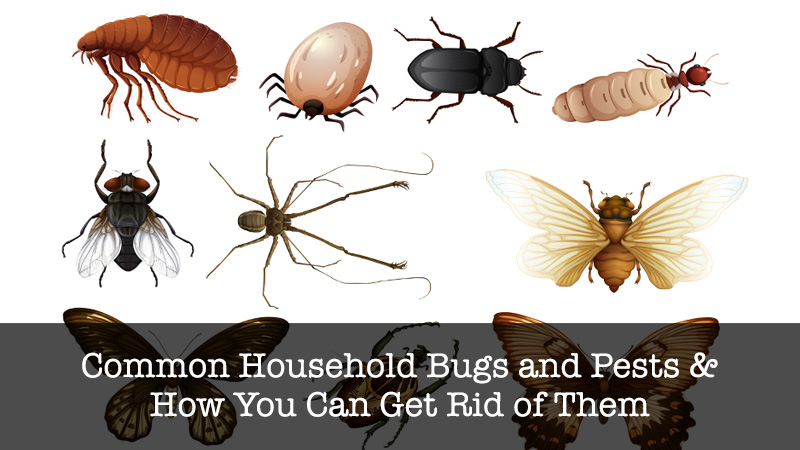Ridding your home of common pests can be a difficult task. Some pests and bugs can be harmful to our health and well-being, while others are just a nuisance. Either way it is important to know how to get rid of household bugs.
Below you will find helpful information on 17 common household pests and how to rid your home of them.
Table of Contents
Common Household Bugs, Where they grow, Their Effects, and How to get rid of them
Centipedes
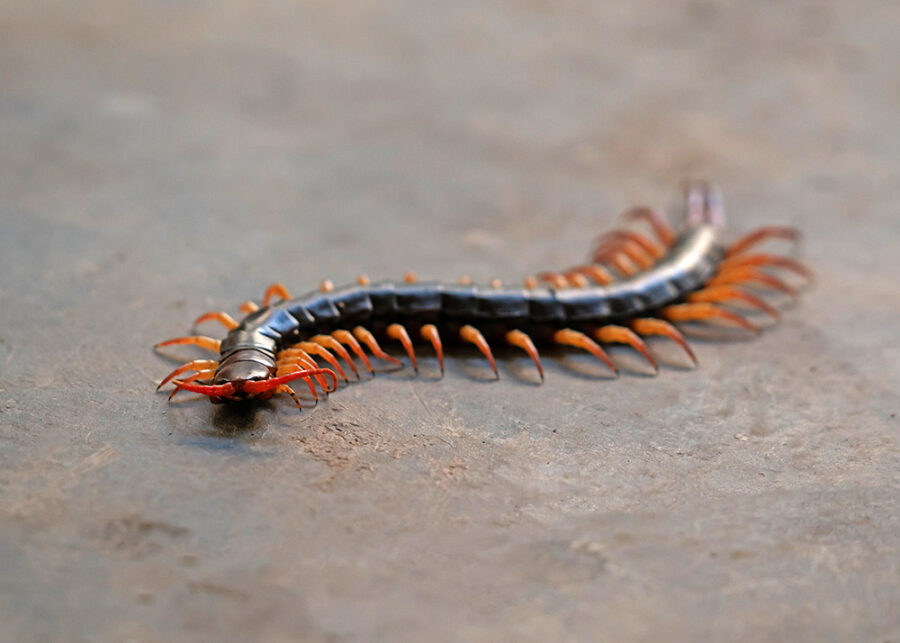
Where they grow:
Common house centipedes are known as, Scutigera coleoptrata, and are generally found in the Mediterranean region. These centipedes can spend their entire lives growing and breeding indoors.
They tend to live in walls and floorboards in damp areas of basements and bathrooms. These centipedes can lay 50-100 eggs at a time and can live 3-5 years.
Effects
While they have a creepy look to them, these little pests are relatively harmless. They generally do not bite humans and keep to themselves.
Tips to get rid of Centipedes:
There are several methods used to get rid of centipedes in your home. The most effective method is to maintain a clean home and keep naturally damp areas like the bathroom dry.
Seal any cracks in your foundation and around windows and doors to keep centipedes and other pests from entering your home.
Products like diatomaceous earth and boric acid can be helpful in getting rid of a centipede infestation. Most standard bug bombs and sprays will kill the centipedes as well.
For more details on how to rid your home of these bugs check out here
Ants
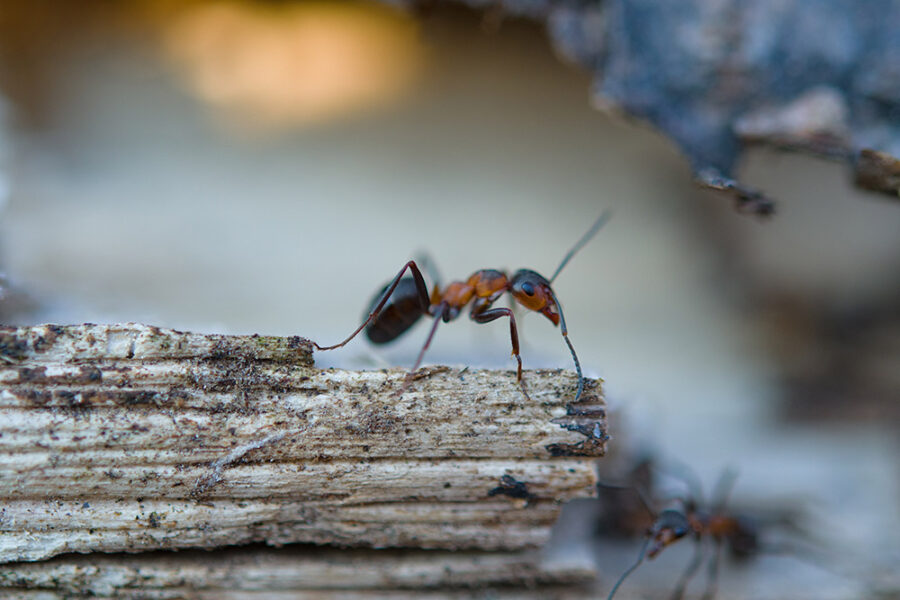
Where they grow:
Most ants live in large groups and colonies. Ants work together to bring food back to their colonies. These pests can often be found in the kitchen or other places in the home where food and crumbs are found, such as the kitchen or the dining room.
It is uncommon to find ant colonies inside the home. Often ants come into the home and find food and then take it back to their colonies to share with other ants.
Effects
With the exception of fire ants, ants pose very little threat to humans. They can be very annoying and can contaminate food that is left out on tables and counters.
Tips to get rid of this Common Household Bugs:
One of the most important things that you can do to keep your home free of ants is to keep your kitchen and dining areas clean and free of food and crumbs. Sweep up after each meal and mop often. Make sure to put any food in airtight containers so that ants cannot get to it.
If you have a lot of ant hills around the outside of your home, eliminating these using pest control sprays can help to keep ants at bay.
Ants leave a scent trail as they travel along. Other ants are attracted to this scent and will follow it to find food. Make sure to clean your floors, tables, and counters with a mixture of vinegar and water to get rid of the scent.
For more details on how to rid your home of these bugs check out here
Bed Bugs
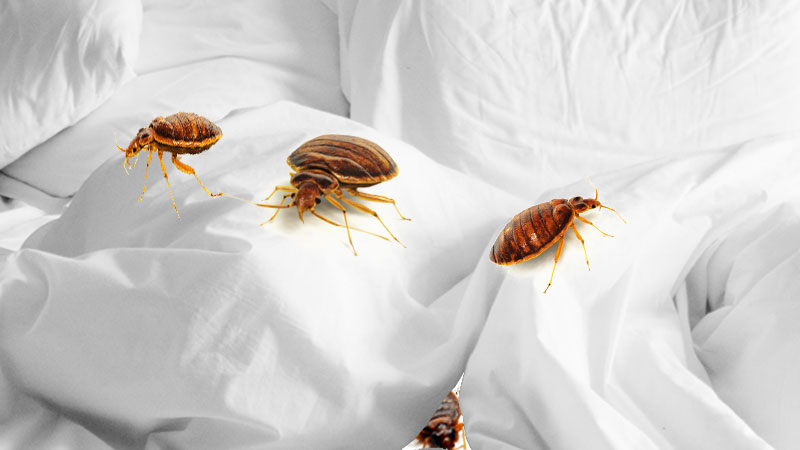
Where They Grow:
While the term bed bugs lead up to believe that these little critters live only in beds, that is not true. Bed bugs can be found in vehicles, stuffed animals, furniture, carpet, and clothing. Bed bugs can be found in just about every region of the world.
They are transported in suitcases, clothing, boxes, and bags. Bed bugs are not limited to only homes. They have been found in schools, hotels, retail stores, taxicabs, and restaurants. Anywhere that there is a human host, bed bugs can live.
Effects
Bed bugs bite humans. Their bite are relatively harmless to most humans; however, some people may have an allergic reaction to bed bug bites. These bites can cause itching and may become infected.
Previously scientists believed that bed bugs carried a host of other diseases. In recent years this has proven to be false.
Tips to get rid of bed bugs:
Bed bug breeds rapidly and requires a professional to remove them. They can lurk in tiny crevasses of your home such as baseboards and wallpaper.
Below you will find some things that you can try to eliminate bed bugs, but because bed bugs have become so prevalent, it is highly recommended that you seek professional help to remove bed bugs.
- Use a stiff brush on baseboards, furniture, curtains, mattresses, and walls to remove any eggs that are laid by bed bugs.
- Treat all areas with alcohol.
- Clean all bedding.
- Seal any cloth items in plastic bags and place them outside of you home preferably in direct sunlight.
- Vacuum often.
- Wash all parts to your vacuum and store it outside your home in a sealed plastic bag.
- Spray pesticides labeled for use against bed bugs.
For more details on how to rid your home of these bugs check out here
Fleas
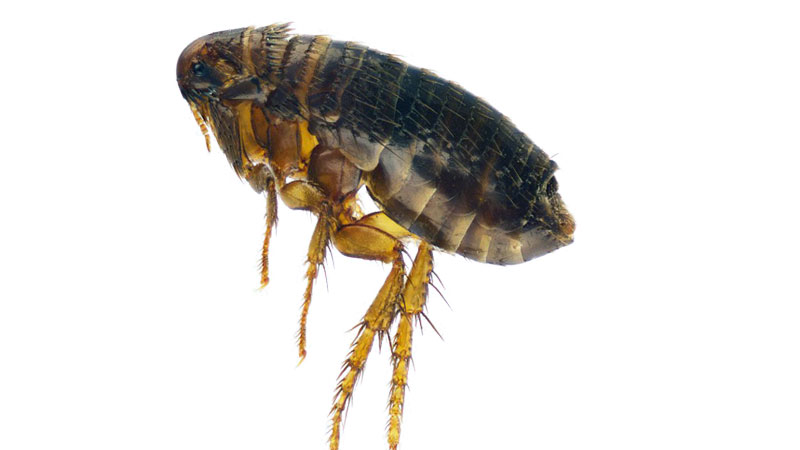
Where They Grow:
Most often fleas are found on our pets, but they can also live in carpet, upholstery, hardwood, and even concrete. They can also hibernate for up to two years.
Fleas that are found in our homes are called cat fleas, but despite the name, these fleas can live on cats, dogs, hamsters, rabbits, and Guinea pigs.
Effects
Fleas can bite humans and be very harmful to pets. This is especially true in cases where the pet is allergic to fleas. They can lead to anemia, tapeworm, plague, and cat scratch disease.
Tips to get rid of fleas:
The first step to getting rid of fleas is to treat your pet with a proven medication to prevent fleas. You can get this from your vet or purchase it over the counter.
You should be warned that many of the off-brand medications do not work as well as those like Frontline and K9 Advantix. Save yourself some money in the long run and purchase the good stuff the first time.
Often times, just treating your pet is enough to rid your home of fleas, because fleas cannot live without a host; however, for severe infestations, you will need to treat your home.
Use a spray that will kill the adult fleas as well as the eggs in all areas of your home. You will also want to treat your carpet with flea powder and vacuum often.
For more details on how to rid your home of these bugs check out here
Flies
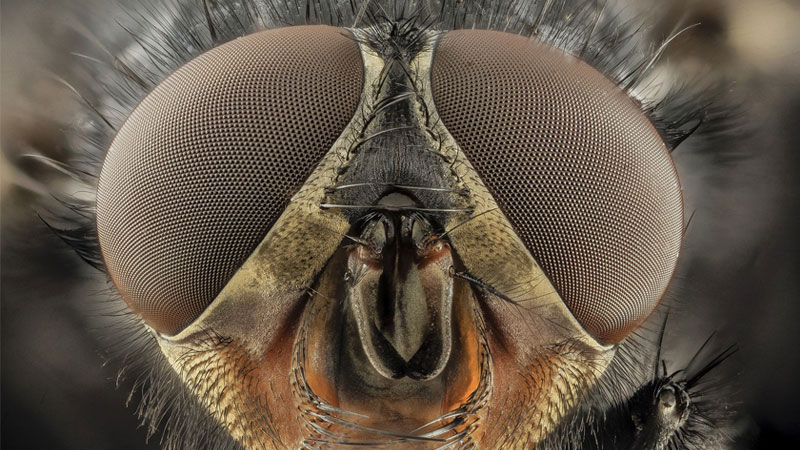
Where They Grow:
Most flies are found outdoors and come into our homes through open windows, doors or cracks. Some flies can live in attics and walls; however, these flies look different and are much slower than those that live outdoors.
Effects
Flies are fairly harmless to humans and pets, although they are quite annoying and have a tendency to buzz around and land on food and drinks which are unsanitary.
Tips to get rid of flies:
The first step to getting rid of flies is to keep your windows and door closed or make sure that you have screens that prevent flies from coming in.
You can also use fly traps which will attract flies and stop them in their tracks. There are also many recipes for homemade fly deterrent using essential oils.
For more details on how to rid your home of these bugs check out here
Lice
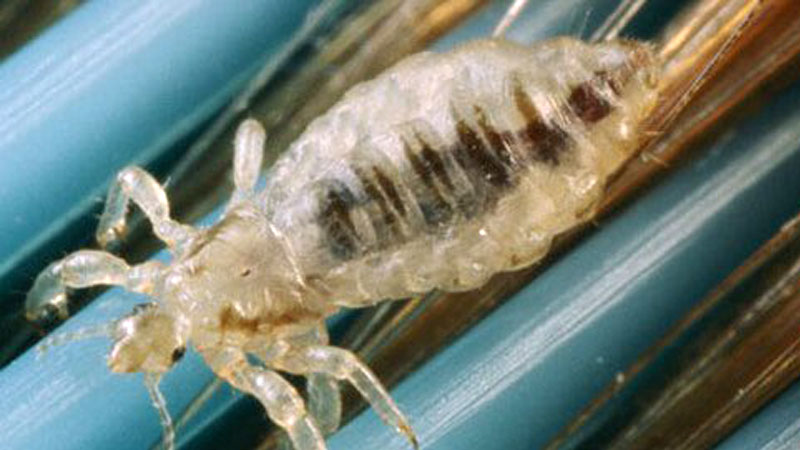
Where they grow:
Lice affect as many as 12 million kids in the USA on an annual basis. They live in human hair and children as well as adults can get lice.
Effects
Lice cause the scalp to be itchy and irritated; however, they do not cause harm to the body. They are not known for transmitting diseases. Excessive itching can lead to open wounds which can subsequently become infected and need medical treatment.
Tips to get rid of lice:
Commercial treatments can be used to get rid of lice; however, lice have become immune to these over the years. There are also prescriptions that you can get from a doctor to get rid of lice; however many parents do not like to use these treatments on their children because of the side effects.
Many natural treatments can be used to remove lice as well. To fully get rid of lice you will need to eliminate both the adult lice and their eggs (nits).
You will need to me vigilant in your treatments and continue to perform them for several weeks to make sure all of the lice are gone. It is also important to wash pillows and pillowcases to kill any lice that may be living on them.
For more details on how to rid your home of these bugs check out here
Mites
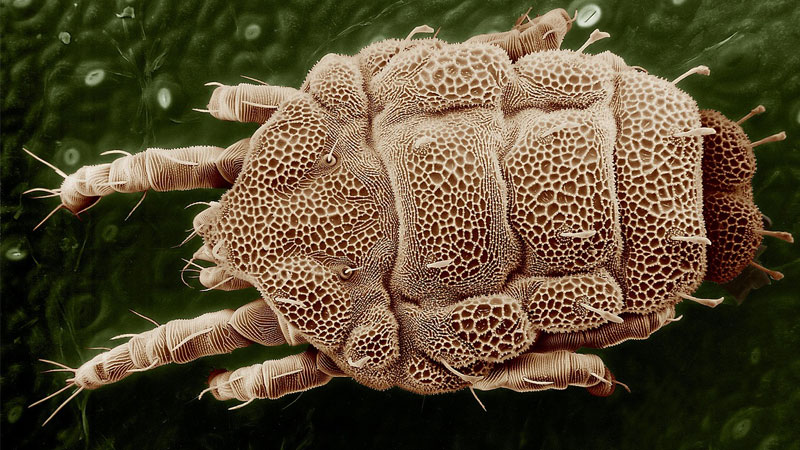
Where they grow:
Dust mites can be found in pillows, carpets, curtains, and linens. Garden mites can be found in gardens and on houseplants. Dust mites tend to live in areas where there is a lot of dust and garden mites live on plants and vegetation.
Effects
Dust mites can bite. Their bites can lead to serious skin irritation. Many humans are allergic to these mites and reactions may include:
- Swelling
- Itching
- Irritation
- Bumps
Itchy skin can lead to lacerations which can become infected and need medical treatment.
Tips to get rid of mites:
Pesticides can be used to get rid of mites on many plants. Although, it is important to only use pesticides on plants that do not bear fruits and vegetables. Getting rid of dust mites can be tricky.
It is important to maintain humidity in your home, use protective covers on mattresses and pillowcases, wash any affected linens, and vacuum often. Replacing any affected furniture is recommended. Professional help may be needed to remove dust mites.
For more details on how to rid your home of these bugs check out here
Mosquitoes
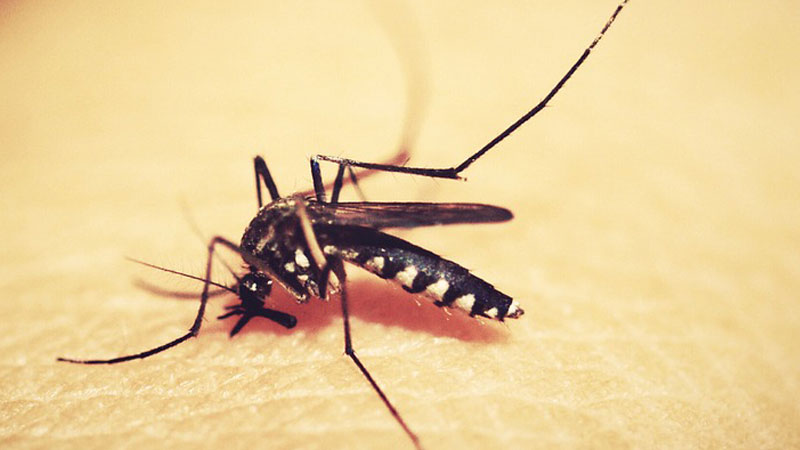
Where they grow:
Mosquitoes can be found all around the world, but especially in areas that have high humidity. Mosquitoes lay their eggs in water, so areas near oceans, lakes, rivers, streams, and ponds are especially susceptible to mosquitoes.
Effects
Mosquitoes are bloodsuckers. When they bite you the suck a little bit of your blood. That is how they survive. In addition to the red bump and itchy skin that a mosquito bite leaves, there are other dangers as well.
Mosquitoes are known to spread diseases by biting one human and then another. They are also well known for the spread of West Nile Virus.
Tips to get rid of this harmful and Common Household Bugs mosquitoes:
You can certainly have your yard sprayed for mosquitoes, but this does not always keep them at bay. Make sure you remove any standing water sources around your yard.
If you have uneven places in your lawn, that retain water, fill them in to prevent standing water. There are also many natural ways to keep mosquitoes away. Try using lavender spray before you go out in the evening.
For more details on how to rid your home of these bugs check out here
Pantry Moths and Meal Moths

Where they grow:
These moths are found in home pantries and can be a huge nuisance. They will often invade pantry items such as cornmeal, flour, and pasta. These little pests will eat anything that they can find, so it is important to keep a clean kitchen to avoid them.
Effects
These pests can live on just about any little crumb of food and they breed rather quickly. A few meal moths can turn into hundreds very quickly. They can ruin your food and cost you a lot of money in waste.
Tips to get rid of pantry moths:
Clean your kitchen from top to bottom. Make sure to wipe every surface and every item in your pantry. Store open goods such as cereal, pasta, sugar and flour in airtight containers.
Even the cleanest of homes can become infested with pantry moths because they are brought into the home in prepackaged food containers from time to time.
There are many pantry moth traps available on the market. These are great for catching any lingering pantry moths once the kitchen has been cleaned.
For more details on how to rid your home of these bugs check out here
Common Household Bugs Cockroaches
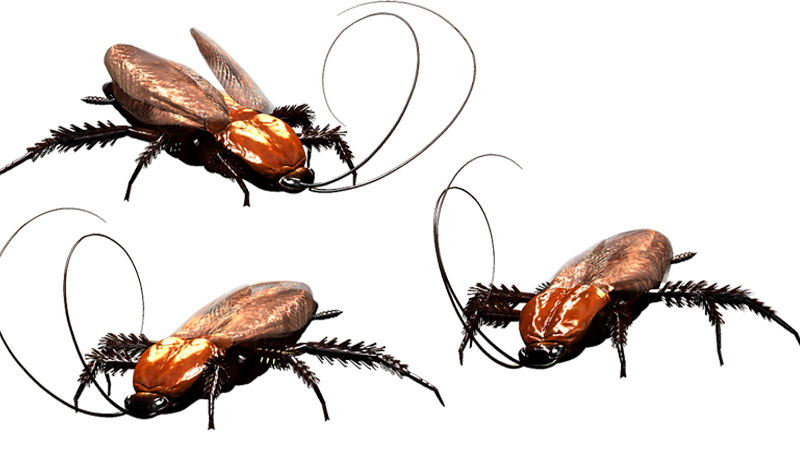
Where they grow:
Most cockroaches can live and grow in dark, damp areas such as basements and inside of walls. They also love the smell of paper and will live in stacks of newspaper and even office paper. Cockroaches can be found throughout the world and travel in luggage, on airplanes, and in vehicles.
Effects
Cockroaches can reproduce at a rapid rate. If you see one cockroach (especially during the day), you should know that there are likely hundreds more lurking in your home. These little guys also spread bacteria throughout your home. It is important to work to get rid of them at the first sign of cockroaches.
Tips to get rid of cockroaches:
Cleaning is the first step to take to get rid of cockroaches. Clean your entire home and make sure that thee are no crumbs or food particles left out where cockroaches can get to them. Make sure to store any boxed pantry items in airtight containers.
Eliminate clutter and paper stacks where cockroaches may live. The next thing that you want to do is purchase roach traps and roach away.
These items will help to keep the roaches at-bat. Scatter the roach traps around your home and mix the roach bait with flour, peanut butter and water to make a paste. Put this paste in inconspicuous areas around your home where the roaches will find it, eat it, share it with their friends and die.
In cases of severe infestation, you may need to call a professional pest control company for help.
For more details on how to rid your home of these bugs check out here
Common Household Bugs Spiders
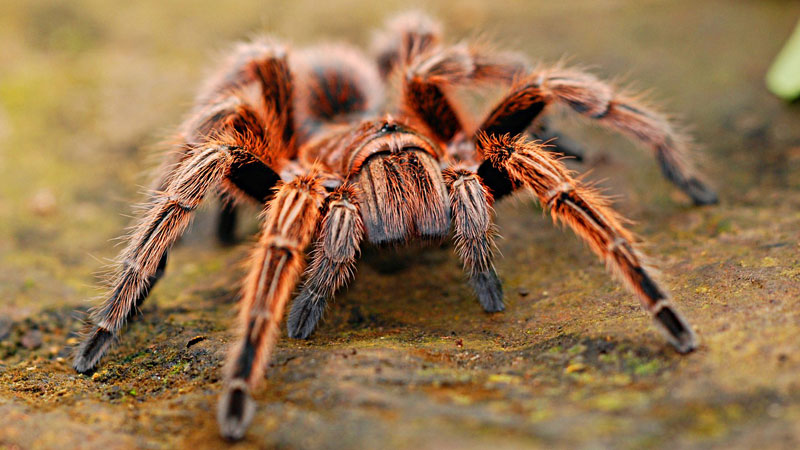
Where they grow:
Spiders usually come into your home from the outside, but they can lay their eggs in your home. They love cluttered areas, so it is important to keep your home clutter-free.
Effects
While most common house spiders are not harmful to humans, they can be a nuisance. Some varieties of spiders do bite and some are venomous. It is important to keep your home free of these types to prevent illness and injury.
Tips for getting rid of spiders:
Keep your home as clutter-free as possible. Vacuum and dust your home often. The easiest way to keep your home free of spiders is to prevent them from coming inside.
Make sure that your windows and doors are well sealed. Keep firewood stacked away from the home. Keep plants and shrubs cut back away from the house. Spray the perimeter of your home with peppermint oil.
For more details on how to rid your home of these bugs check out here
Ticks
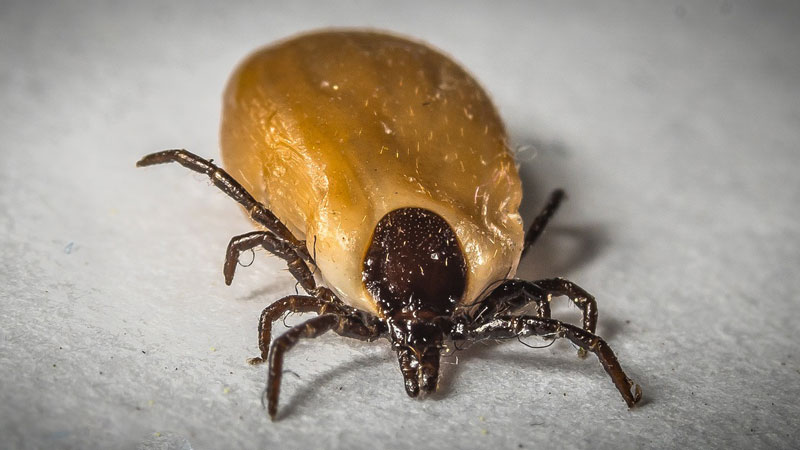
Where they grow:
Ticks tend to live in trees and brush. They often will spend their entire life on a single host (animal or human). They are most active during warm weather, although they will sometimes try to find a host even during freezing temperature.
Most of the time, ticks do not live and breed in homes. They are brought into homes by animals such as bats in an attic or a pet that goes inside and out.
Effects
Ticks are harmful to humans and animals. They bury their heads under the skin of humans and pets to feed off of their blood. Ticks can spread and carry a host of diseases, however, the most concerning is Lyme disease.
Tips for getting rid of ticks:
Keep the areas around your home free of brush and firewood. If you have been out working in the garden or hiking in the woods immediately wash clothing in hot water.
Wear a hat when you are outdoors and check your head for ticks when you come in. Make sure to treat pests for ticks every 2-3 months during the summer.
For more details on how to rid your home of these household bugs check out here
Household Bugs Termites
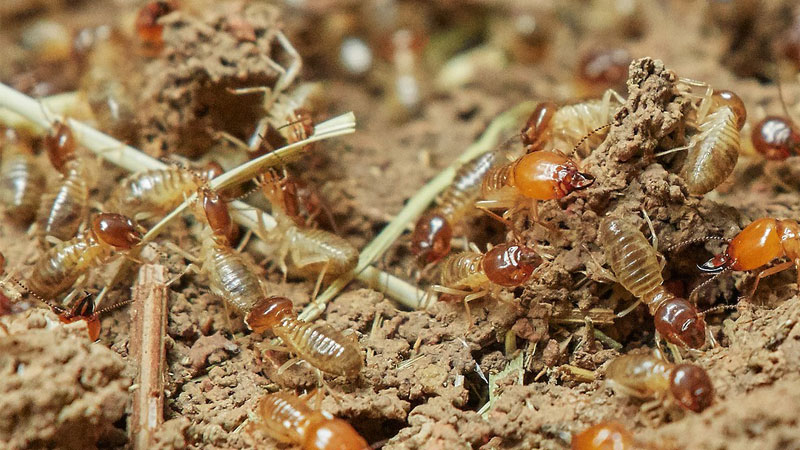
Where they grow:
Termites that feed on dry wood live in warm areas of the country that do not get below freezing. Other types of termites do live in regions where the weather gets below freezing. Each of these types of termites feeds on wood.
Effects
Termites are not poisonous or deadly to humans, but they are detrimental to our homes and structures. These little guys can eat up to a pound of wood in 5 years. While the damage is slow it is a problem that you want to stop right away to preserve the structure of your home.
Tips for getting rid of termites:
There are many ways to eliminate termites, but it does take some time. Orange oil is effective for killing termites that can see, however, it is not as effective for those that are burrowed deep inside the wood.
Boric acid is another chemical that is useful in getting rid of termites. Often times for a particularly bad infestation, a microwave or electrocution is used.
For more details on how to rid your home of these household bugs check out here
Household Bugs: Carpet Beetles
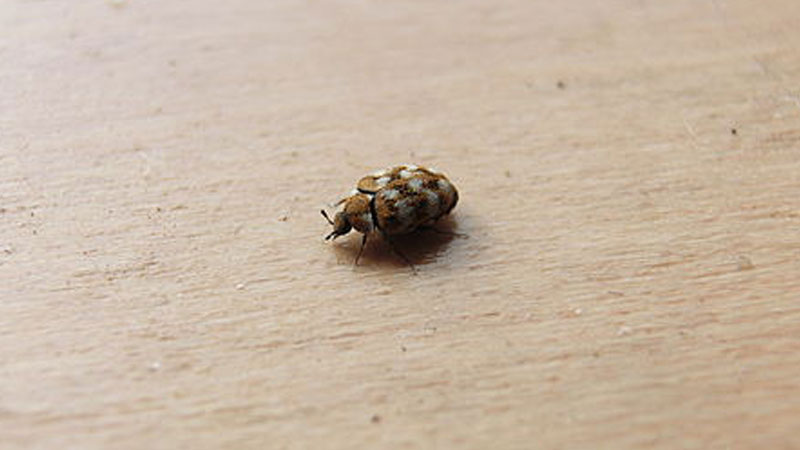
Where they grow:
Carpet beetles live and bread in carpet, rugs and other surfaces near the ground. They can be found on mounted and stuffed game animals as well. They can live in the northern and southern US as well as other parts of the world.
Effects
Carpet beetles are not harmful to humans and do not bite pets. The can be detrimental to the carpet, furniture, and other linens. An infestation of carpet beetles can grow rapidly and it is important to remove them as quickly as possible.
Tips for getting rid of carpet beetles:
Getting rid of the item that the beetles are infesting is the best way to go about getting rid of them. Although in the case of carpets and furniture, this is not always a choice.
Extreme heat and cold will kill these pests. If you have the option heat the item to 120 degrees or freeze the item for 48 hours. Insecticides can also be used to kill carpet beetles.
For more details on how to rid your home of these bugs check out here
Wasps
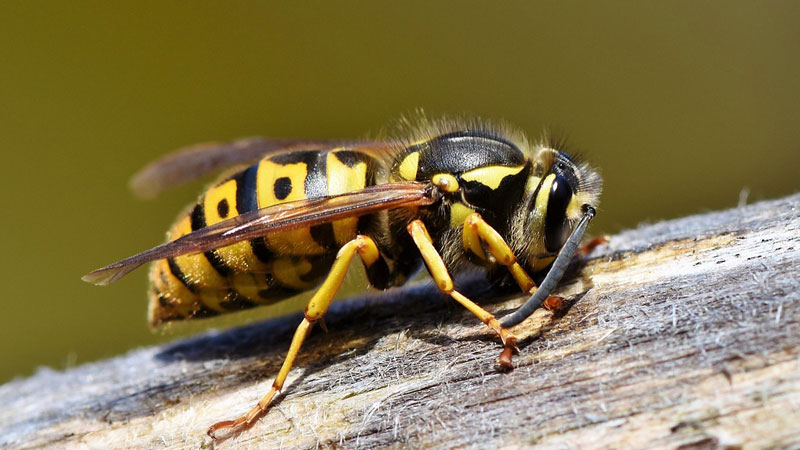
Where they grow:
Wasps grow in nests which are found outdoors in trees and among dwellings. Sometimes wasps nest can be found in attics. They are usually active in the warm months and dormant during the cold.
Effects
Wasps are dangerous to humans as they sting. Wasp stings are painful and some people are even allergic to them. It is important to eliminate wasps in and around your home quickly and effectively.
Tips for getting rid of wasps:
It is important to be saved and wear long sleeves and pants when trying to eliminate wasps. A swarm of wasps can be deadly so make sure that you cover as much skin as possible when dealing with wasps.
Leave getting rid of large wasp nests to the professionals. Raid makes a product that kills wasps and wasp nests. There are also natural sprays available to get rid of wasps.
For more details on how to rid your home of these household bugs check out here
Box Elder Bugs
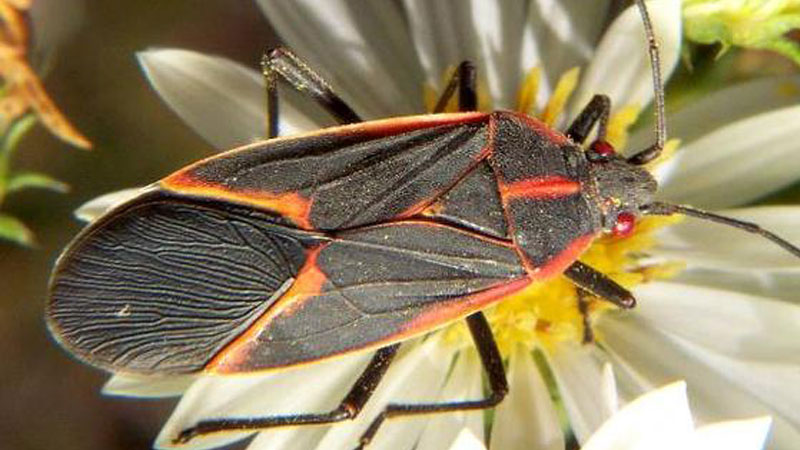
Where they grow:
Boxelder bugs can be found both inside and outside homes. They like to congregate in and on walls that are south facing. They generally arrive in the spring and in the fall. In the springtime, they emerge from their hiding places to breed. In the fall they return and lie dormant for the winter.
Effects
These household bugs are not dangerous to humans. They are more of a nuisance than anything because they arrive in very large numbers.
Tips for getting rid of box elder bugs:
Pesticides can be used to get rid of these pests, but before you go spraying harmful chemicals around your home there are some other things that you can do. Seal your home during the summer months to prevent the household bugs from returning.
You can also use a vacuum to suck up visible elder bugs inside your home. Place powder insecticides in cracks and crevices.
For more details on how to rid your home of these household bugs check out here
Stink Bugs
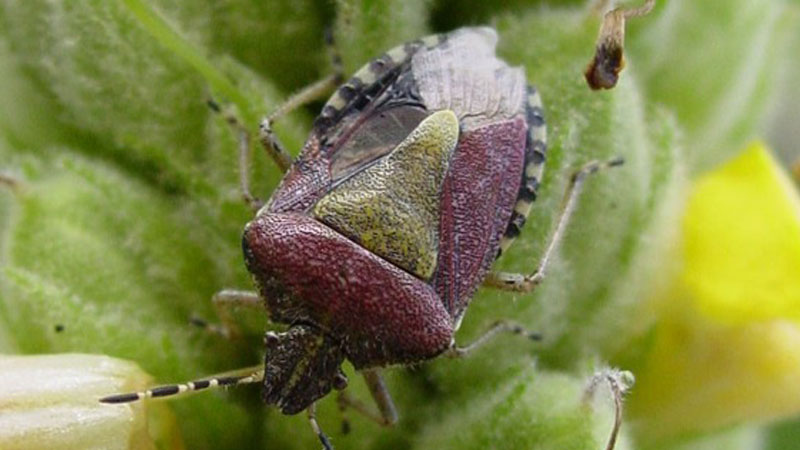
Where they grow:
Stink bugs are all over the United States. They really seem to like brick homes because of their ability to harbor heat from the sunlight; however, these bugs can be found in all homes and in large numbers.
Generally stink bugs come out from their hiding places in the spring and return in the fall, although they can be found year-round in homes.
Effects
Stink bugs are not harmful to humans, but they do release a foul-smelling odor when they are killed or feel threatened. If you must kill a stink bug do not squash it.
Tips for getting rid of stink bugs:
For visible stink bugs, you can vacuum them up in a tight sealing vacuum cleaner. You can also spray them with a solution of water and dawn dish soap.
Seal off any areas of your home where the bugs may enter. Stink bugs are resistant to common pesticides. If you have a large infestation of stink bugs, you may need to call a pest control company.
For more details on how to rid your home of these bugs check out here
Always remember that the best way to keep your home pest free is to keep your home clean and free of clutter. In severe cases call a professional to help you rid your home of pests.
It is important to always wear a face mask, eye protection, and gloves when dealing with harmful chemical pesticides.

